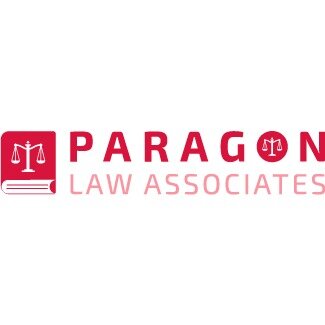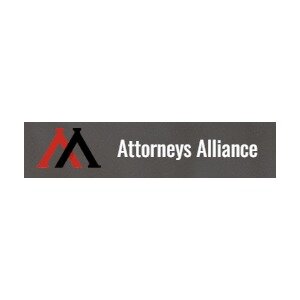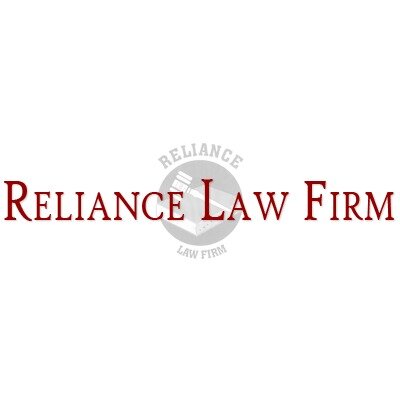Best Water Law Lawyers in Nepal
Share your needs with us, get contacted by law firms.
Free. Takes 2 min.
Or refine your search by selecting a city:
List of the best lawyers in Nepal
About Water Law in Nepal
Water Law in Nepal refers to the body of legal principles, statutes, and regulations that govern the management, use, and protection of water resources in the country. Given Nepal’s rich hydrological resources and its dependence on rivers, lakes, and groundwater for agriculture, drinking water, hydropower, and industry, effective regulation of water use is essential. Water Law in Nepal aims to balance these needs with environmental conservation and sustainable development, while also addressing water rights and dispute resolution.
Why You May Need a Lawyer
Legal issues related to Water Law in Nepal can be complex, involving a blend of property rights, environmental regulations, and community interests. Here are some common situations where people might need legal assistance:
- Securing permits or licenses for water use, such as for irrigation, hydropower, or industrial purposes
- Resolving disputes over water rights between individuals, communities, or companies
- Dealing with land acquisition and compensation related to water projects
- Navigating compliance with environmental standards and regulations
- Handling problems related to water pollution or contamination
- Ensuring access to drinking water for communities
- Challenging or defending government actions or policies related to water management
A lawyer specializing in Water Law can help interpret complicated statutes, represent your interests in negotiations or court, and ensure that your rights are protected.
Local Laws Overview
The legal framework for Water Law in Nepal is primarily built around the Water Resources Act 1992 and several regulations, policies, and guidelines derived from it. Some of the most relevant aspects include:
- Water resources are declared as national property under state ownership, but users can obtain utilization rights.
- Water users must often obtain permits or licenses from relevant authorities, especially for large projects.
- The law establishes priorities for water use, giving preference to drinking water, followed by irrigation, agriculture, and hydropower.
- Provisions exist for conflict resolution, such as mediation or government intervention in case of disputes.
- Measures are in place for the protection, conservation, and sustainable management of water sources.
- Environmental Impact Assessment (EIA) is mandatory for major water resource projects.
- Regulations also deal with tariff setting, service delivery, and the roles of Water Users Associations.
- There are penalties for unauthorized use, pollution, or destruction of water sources.
Frequently Asked Questions
What is Water Law in Nepal?
Water Law in Nepal governs the ownership, management, use, and protection of water resources within the country. It outlines the legal provisions for obtaining water rights, allocating water, and resolving disputes.
Who owns water resources in Nepal?
According to the Water Resources Act 1992, all water resources in Nepal are owned by the state. However, individuals and organizations can apply for rights to use water for approved purposes.
Do I need a permit to use river or groundwater for my farm?
Yes, using significant quantities of river water or extracting groundwater especially for commercial, industrial, or large-scale agricultural purposes generally requires a permit from the Department of Water Resources and Irrigation or related local authorities.
What is the priority order of water use under Nepali law?
Drinking water is given the highest priority, followed by irrigation and agriculture, hydropower generation, fisheries, and other uses as stated in relevant acts and regulations.
How are water use disputes resolved?
Disputes can often be resolved through negotiation or mediation. If unresolved, parties may approach government authorities or represent their case in court for a legal remedy.
Is it legal to construct a private dam or barrier on a river?
Private construction of any structure that affects the natural flow of a river typically requires government approval. Unauthorized construction is subject to penalties.
What laws exist to prevent water pollution?
There are specific provisions within Water Law and Environmental Protection Acts that prohibit discharging pollutants into water sources. Offenders may face fines, compensation claims, or other legal actions.
How is hydropower regulated in Nepal?
Hydropower development is subject to a licensing regime which includes an Environmental Impact Assessment, land acquisition rules, and compliance with tariffs and safety standards, overseen by the Department of Electricity Development and related agencies.
Can communities form groups to manage local water resources?
Yes, local communities are encouraged to form Water Users Associations or committees. These bodies can manage small-scale irrigation or drinking water projects and resolve local conflicts under the guidance of the law.
What should I do if my drinking water source is being polluted or diverted?
You should first report the matter to local government offices or the Department of Water Resources and Irrigation. Legal action can be taken against those responsible, and compensation may be claimed for damages.
Additional Resources
Here are some helpful resources and organizations you may contact for more information or assistance regarding Water Law in Nepal:
- Department of Water Resources and Irrigation
- Water and Energy Commission Secretariat
- Department of Electricity Development
- Ministry of Energy, Water Resources and Irrigation
- Environmental Protection Council
- Nepal Bar Association (for referrals to lawyers specializing in Water Law)
- Local government offices and district administration offices
- Non-governmental organizations working in water resource management and environmental protection
Next Steps
If you believe you need legal assistance in Water Law matters in Nepal, consider the following steps:
- Gather all documents and facts related to your issue, such as permits, correspondence, or photographs
- Contact your local government office or relevant department for initial guidance
- Consult a lawyer specializing in Water Law to fully understand your rights and obligations
- If necessary, seek mediation or negotiation through a Water Users Association or other informal channels
- If the dispute cannot be resolved amicably, consider filing a legal complaint with the appropriate authority or court
- Keep records of all interactions and steps you have taken for reference
Navigating Water Law can be complicated, especially with overlapping regulations. Professional legal support can make a significant difference in protecting your interests and ensuring sustainable resource management.
Lawzana helps you find the best lawyers and law firms in Nepal through a curated and pre-screened list of qualified legal professionals. Our platform offers rankings and detailed profiles of attorneys and law firms, allowing you to compare based on practice areas, including Water Law, experience, and client feedback.
Each profile includes a description of the firm's areas of practice, client reviews, team members and partners, year of establishment, spoken languages, office locations, contact information, social media presence, and any published articles or resources. Most firms on our platform speak English and are experienced in both local and international legal matters.
Get a quote from top-rated law firms in Nepal — quickly, securely, and without unnecessary hassle.
Disclaimer:
The information provided on this page is for general informational purposes only and does not constitute legal advice. While we strive to ensure the accuracy and relevance of the content, legal information may change over time, and interpretations of the law can vary. You should always consult with a qualified legal professional for advice specific to your situation.
We disclaim all liability for actions taken or not taken based on the content of this page. If you believe any information is incorrect or outdated, please contact us, and we will review and update it where appropriate.
Browse water law law firms by city in Nepal
Refine your search by selecting a city.

















